
 Post Category - ParentingParenting - Post Category - BabyBaby
Post Category - ParentingParenting - Post Category - BabyBaby Post Category - WellnessWellness - Post Category - HealthHealth
Post Category - WellnessWellness - Post Category - HealthHealthCurious about confinement, including its origins and benefits? TCM experts explain why its still relevant today after thousands of years, and how it can benefit you in a modern context
Traditionally, Chinese women must observe a strict one-month postnatal confinement. Even now, many modern and highly-educated women still follow the tradition. But how relevant are these guidelines today, from both the oriental TCM (Traditional Chinese Medicine) and Western medicine’s perspectives? Here, with the help of TCM experts, Urban Rehab, we take a closer look at these “rules and regulations”, which we shall refer to as taboos.
Confinement practices are traditional post-natal practices with the aim of helping new mothers recover from the 9-month long rigours of pregnancy, labour and childbirth, which is said to be a period where a huge amount of energy is drained from mothers. The term “confinement” basically suggests that new mums are effectively “quarantined” at home and confined to a certain regimen comprised of a nutritious diet, to-do’s and not-to-do’s, and plenty of rest.
The earliest record of confinement practices dates back more than 2,000 years ago from Xi Han, from The Book of Rites (Liji 《礼记》) and Pattern of the Family (Neize《内则》). Known as ‘zuo yue zi’ (坐月子) in Chinese, this practice is consistent with ‘puerperium’ or post-natal restorative period in Western medicine; both emphasize giving time and care for the mothers’ body to facilitate recovery after childbirth. Resting and restoring during this period is not merely a traditional upkeep, but a necessity not to be downplayed.
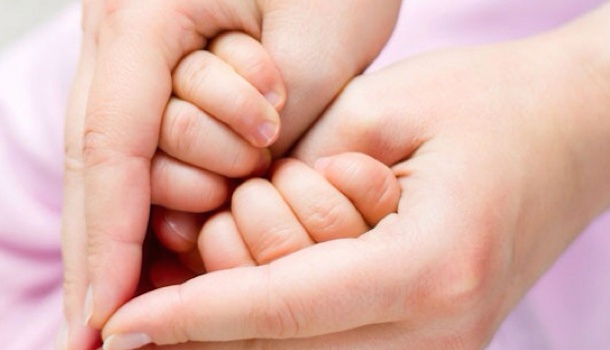
Image sourced via Pinterest
In spite of this longstanding tradition, one cannot help but question the authenticity of some practices and taboos observed in confinement. Let’s take a closer look:
Taboo 1: During confinement, one should not bathe or wash hair.
TCM: Due to the huge loss of blood and qi during labour, there will be a period of time when mothers’ immunity and constitution are weakened and frequent spontaneous sweating may occur as a result of qi deficiency. Hence, bathing and washing hair can increase the chances of catching a cold. Once a cold is caught during confinement, mothers will have to stop taking tonics and wait for the cold to subside to avoid further trapping the cold within the body, thus hindering the recovery of qi and blood.
Furthermore, according to TCM, being qi and blood deficient, coldness can penetrate deep into the meridians easily and cause stagnations in the body which may show up as headaches and joint pains later on. The place where pain develops is also where the cold is stagnated (or trapped or stuck) in the body.
In the past, there was no hairdryer or electric heater and it was inconvenient to boil water. Furthermore, people in the past mostly had long hair that would take a long time to dry after washing. Hence the taboo of not bathing and washing hair during confinement was established.
However, as living standards have improved over time, this taboo’s necessity is lessened by hairdryers, using warm water for bathing and making sure that mothers in confinement are kept warm all of the time.
Western medicine: The body is weak after giving birth, the muscles will loosen and the pores open up easily. Furthermore the body is prone to infection and other such problems after delivery. Hence the chances of catching a cold may be higher during post-partum.
However, proper hygiene of mothers should be well maintained after giving birth, especially in the vaginal area where lochia discharge can become a breeding ground for germs and bacteria which can result in infection. Therefore taking baths and washing hair after childbirth is necessary but needs to be done with utmost care. Ensure that bath water is warm and not too hot; that bathing water is clean and free from pathogens; and that one dries herself thoroughly after a bath.
As for mothers who have gone through a C-section, baths should be taken after the incision is healed.
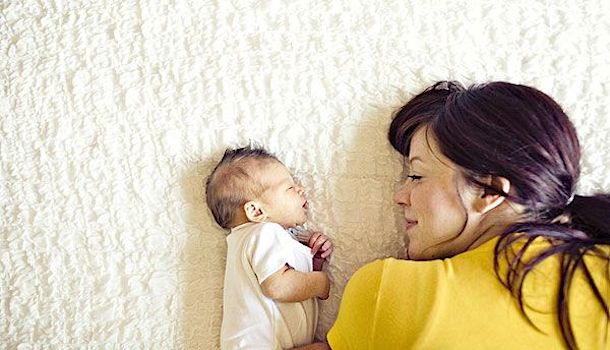
Image sourced via Pinterest
Taboo 2: During confinement, one should stay indoors with the doors and windows shut at all time and undergo bed rest for the entire month.
TCM: In the past, people lived in houses that were mostly poor in insulation and cold winds could blow right into the house. Hence, to avoid catching colds as mentioned in Taboo 1, this taboo of staying indoors with closed doors and windows at all times is established. Furthermore, according to the book Reproducing Women: Medicine, Metaphor, and Childbirth in Late Imperial China by Yi-Li Wu, “soil kicked up from dirt floors, by animals living in the home could have led to the practice of seclusion.” Therefore, not only should mothers avoid going outdoors but also stay in bed during confinement.
However, in modern times and especially in tropical countries where the weather is hot, this taboo is inapplicable and instead, TCM encourages mothers to rest in rooms that are well ventilated while making sure that wind from outside does not blow directly at them. Fans and air conditioning are allowed as long as the mothers’ bodies are not directly exposed to the cool air from these modern appliances.
Initially after birth, mothers will experience fatigue due to the huge loss of blood and energy delegated to birth. Hence, full bed rest should be observed at the start of confinement. However, once mothers feel that their bodies have sufficient rest and they have regained much energy, they should avoid lying in bed all the time and should start doing some simple exercises. According to the TCM classic Huangdi Neijing《黄帝内经》, “mobility generates Yang, immobility depletes Qi”. Thus movements and exercises can allow qi and blood to flow and internal organs to function smoothly. Prolonged bed rest can instead cause one to feel more tired and is not conducive to lochia discharge and bowel movements.
Western medicine: Much energy is drained from mothers in the process of labour and birth, leaving them tired and weak at the end of the entire 9-month long pregnancy. Thus rest is necessary after childbirth for the mother’s body to recover to its prenatal state and for lactation to occur smoothly. However this does not mean seclusion and complete month-long bed rest. This is because immobility from prolonged bed rest can lead to decreased peristalsis, which can cause post-natal constipation, deep vein thrombosis due to slow blood movement, prolapse of uterus, rectum or bladder due to weak pelvic floor. Furthermore, shutting oneself out from the outside world can bring about post-natal depression.
According to the United Kingdom’s National Institute of Health and Care Excellence (NICE) guidelines, (Post-natal care: Routine post-natal care of women and their babies; NICE Clinical Guideline (2006)), “the mother should start walking about as soon as possible, go to the toilet when necessary and rest when she needs to. She may prefer to stay in bed for the first 24 hours or longer if she has an extensive perineal repair”.
While mothers should only start getting out of bed after feeling their energy is regained, they can also turn themselves over in bed frequently while resting in bed to prevent retroversion or tipping of uterus, and to aid in lochia discharge. Pelvic floor muscle squeezes can be done as soon as possible after giving birth, helping the perineum and vagina to heal more quickly and prevent swelling of the perineum.
In general, mothers who have undergone vaginal birth can start ambulating the second day after birth and gradually increase the frequency, area and time of ambulation according to the rate of recovery of the body. For cesarean mothers, they may need longer bed rest to aid recovery of the wound.
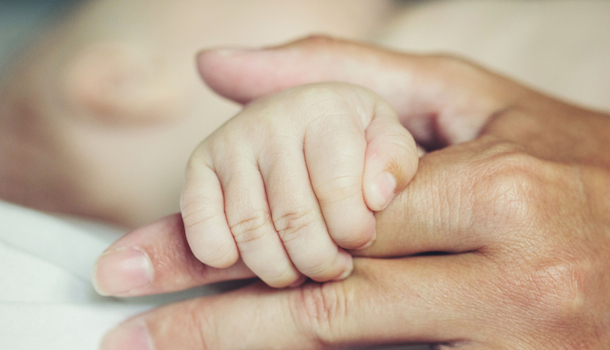
Image sourced via Shutterstock
Taboo 3: During confinement, one should not watch television or read.
TCM: In the past before television existed, reading was one common form of entertainment. Today with television as the main source of entertainment in a majority of households, some traditional elders may forbid mothers from watching television and/or reading during confinement. This is because they believe that being engaged in such entertainments may easily alter the mood of mothers and create disturbances in the mind that can affect proper emotional rest. This is a fact in accordance with TCM principles. In TCM, emotions are considered one of the major internal causes of diseases. Excess emotional activity can cause severe yin-yang energy imbalances, wild aberrations in blood flow, qi stagnations in meridians and impairment of vital organ functions. Thus, rest and recuperation in TCM not only involves the physical aspect but also the emotional aspect.
Also, according to TCM classics, it is mentioned that “liver opens up in the eyes”, which means that the sense organ eyes are closely related to the internal organ liver, and that “liver is nourished by essence-blood (jing xue 精血)”. After giving birth, mothers suffer a great loss of blood, hence depleting the nourishment to liver and indirectly to the eyes. Therefore, the eyes will get tired more easily and watching television or reading may strain the eyes further.
Hence, after understanding this taboo from the TCM perspective, a better explanation would be “during confinement, one should have proper rest physically and emotionally and maintain a good and positive mood”. Having said that, TCM does not forbid mothers from watching television or reading, but advises them to limit themselves to 20 to 30 minutes for these activities, and to avoid content that might be violent or disturbing.
Western medicine: After giving birth, the sudden hormonal, chemical and physical changes that take place in the body will often result in mothers feeling easily depressed. According to the Post and Antenatal Depression Association of Australia, in the factsheet that is laid out to deal with post-natal depression, it mentioned that mothers should “make time to watch TV, read a book or participate in some other activity they enjoy. This can help take the mind off things”.
Thus as a form of activity to clear the blues and boredom or distress, mothers can watch television or read as long as they do not feel too tired doing so.
—
While there is certainly value to the learnings that have come from Western medicine in the past century or so, the essence of the principles of confinement are still highly beneficial to new mothers. Getting enough rest to heal and rejuvenate the body, and taking time to quietly reflect so as to nourish one’s emotional well-being are vital for a woman as she embarks upon motherhood. And there’s 2,000 years of history to back that up!






 View All
View All
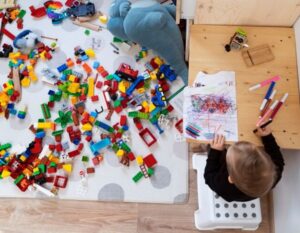

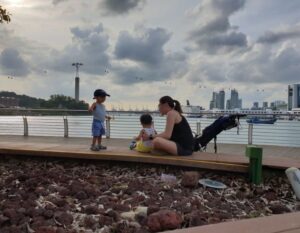

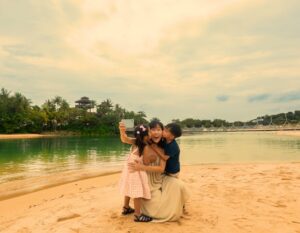
 View All
View All









 View All
View All


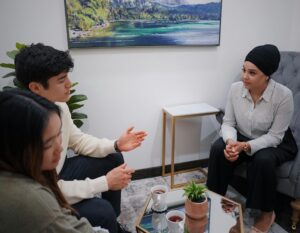


![[𝗦𝗔𝗩𝗘 𝗧𝗛𝗜𝗦] 𝗞𝗶𝗱-𝗔𝗽𝗽𝗿𝗼𝘃𝗲𝗱 𝗗𝗲𝘀𝘀𝗲𝗿𝘁 𝗦𝗽𝗼𝘁𝘀 𝗬𝗼𝘂 𝗖𝗮𝗻 ‘𝗘𝗮𝘁 𝗳𝗼𝗿 𝗙𝗿𝗲𝗲’ 𝗪𝗶𝘁𝗵 𝗖𝗗𝗖 𝗩𝗼𝘂𝗰𝗵𝗲𝗿𝘀! 🍦🍩🧁😉
Before you ask “Can use CDC voucher?” Yes, you definitely can! These spots are perfect for an after-school treat, weekend fun, or just saying “yes” to dessert without saying goodbye to your wallet.
Comment “Sweet” or tap the link in bio for more foodie recommendations!
Got a fave kid-friendly spot that accepts CDC vouchers? Let us know in the comments too!
.
.
.
.
.
.
.
#CDCVouchersSG #SGMumLife #KidFriendlySG #FreeDessert #HeartlandEats #SweetTreatsSG #SGParents #FamilyFunSG #WafflesAndIceCream #BudgetParenting #ThingsToDoWithKidsSG #SGCafes #SupportLocalSG #KidsEatHappy #CDCAdventures](https://www.sassymamasg.com/wp-content/plugins/instagram-feed/img/placeholder.png)
